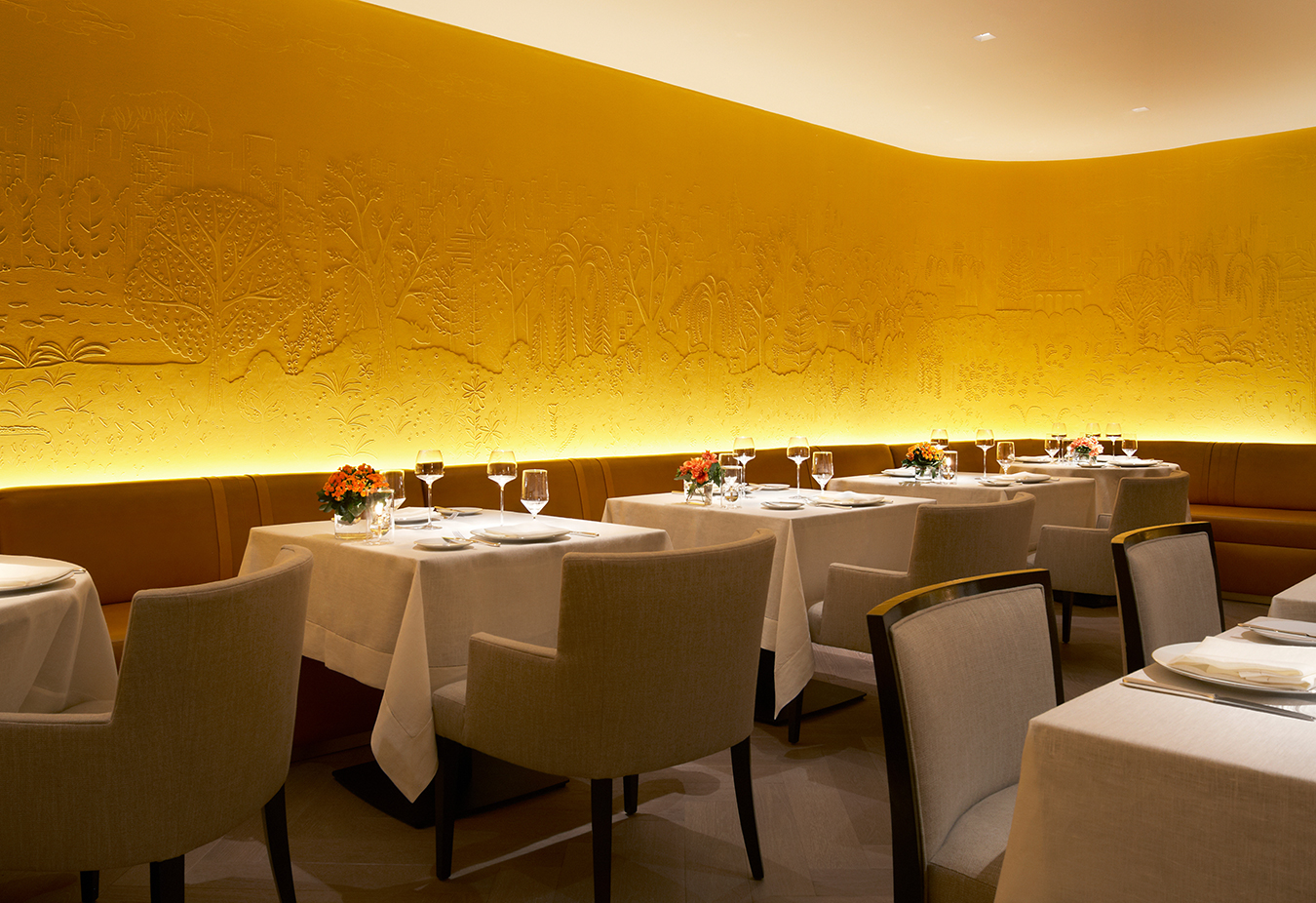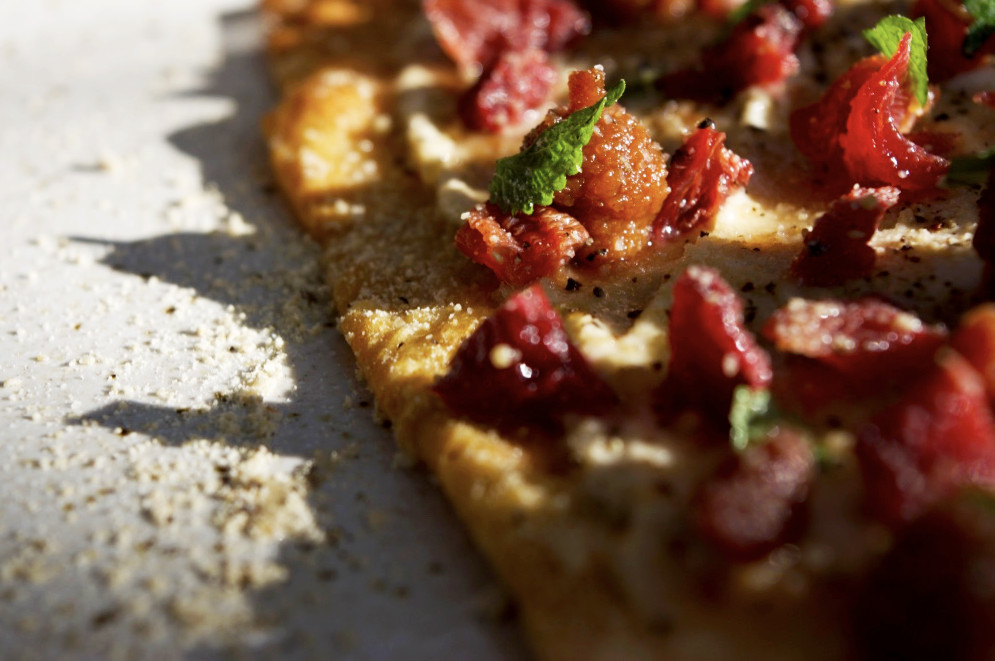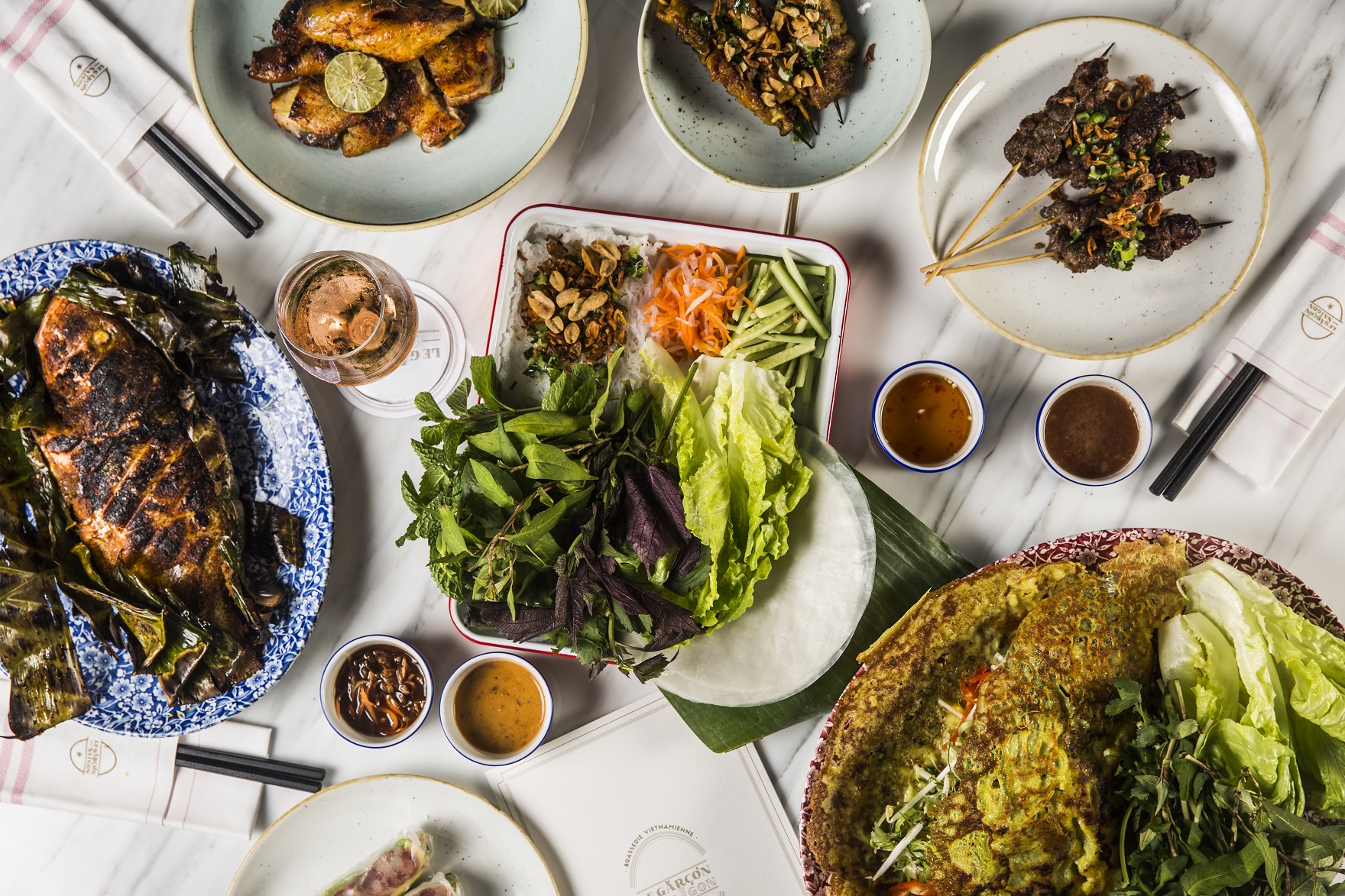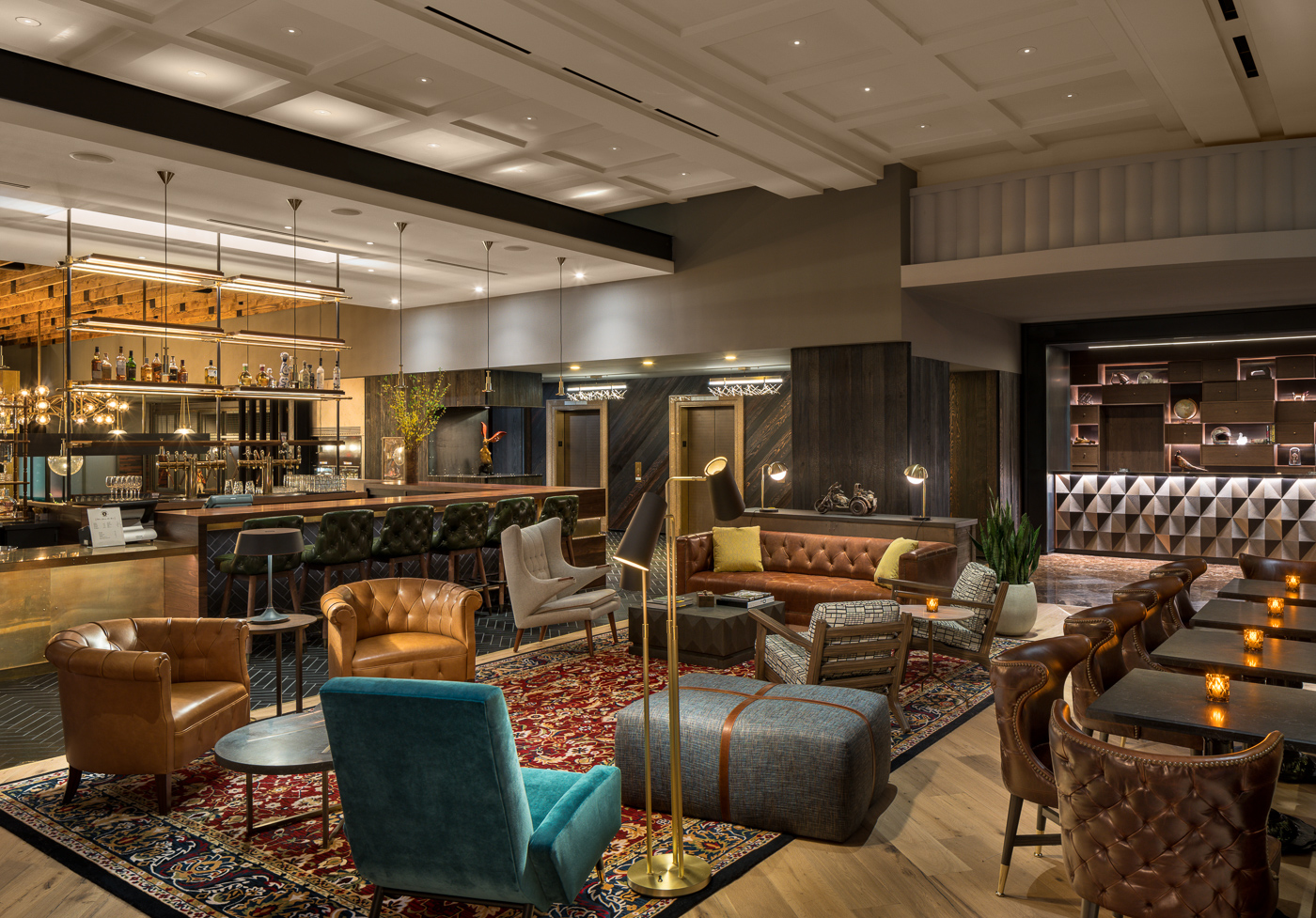The Pillars That Make Vancouver’s Newest Persian Restaurant Shine
Delara space.

When chef Bardia Ilbeiggi, the owner of Delara a Persian restaurant in Vancouver, made the switch from engineer to sous-chef over a decade ago, he came from a different world: he has an aerospace engineering degree from Ottawa’s Carleton University, which landed him on a career path at IBM—but that wasn’t the life for him.
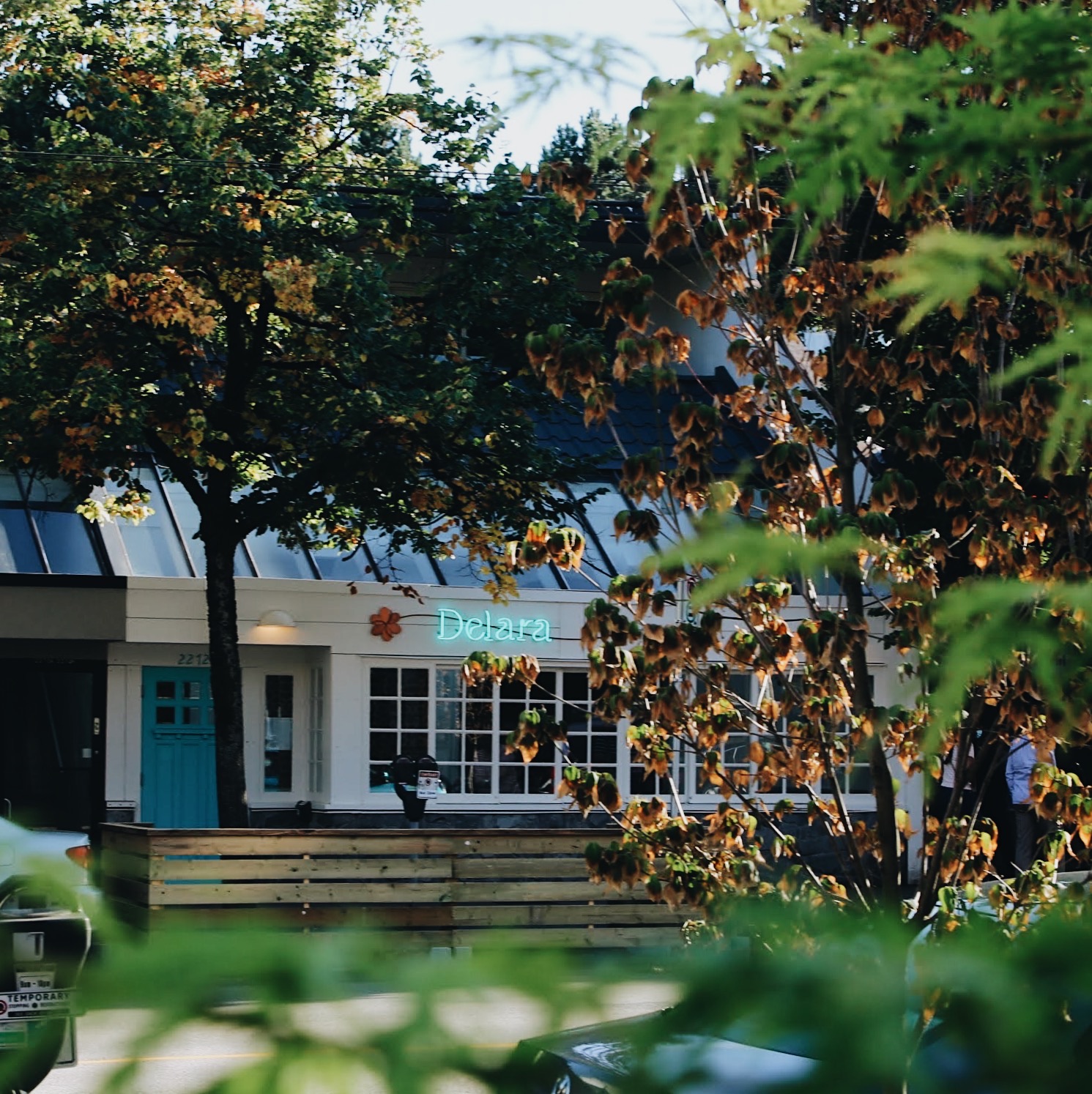
“When I started working in kitchens, it was harsh,” Ilbeiggi explains on a late summer afternoon over the phone. “I didn’t understand why things needed to be explained that way. If I can learn rocket science, cooking should be fine.” But soon, he acquiesced to the “reality of it” and put a plan in motion: To escape the brutality of tense kitchens, one day, he would open his own restaurant.
Ilbeiggi moved from Canada to France to study at the Gregoire Ferrandi culinary school where he underwent rigorous training in classical French cooking. He worked at two Michelin-starred European restaurants—Frenchie in Paris and Relae in Copenhagen—then cooked in Vancouver at the award-winning L’Abattoir and Farmer’s Apprentice.
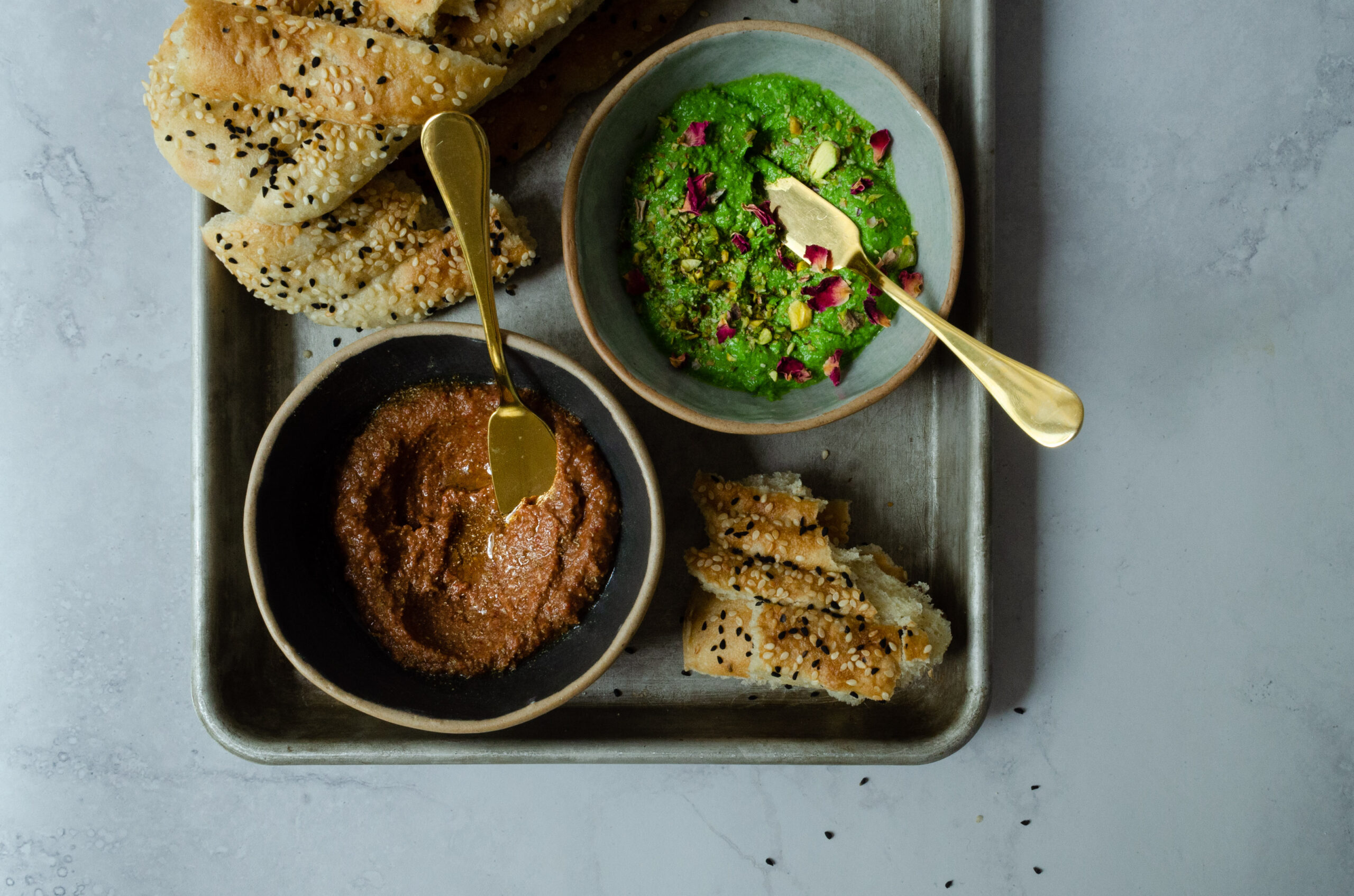
It was at Farmer’s Apprentice where the Iran-born cook says he began to formulate a philosophy for running his own kitchen. “I learned about appreciation there. David [Gunawan] is this kind guy that was very generous and made everyone feel like his equal. I thought, ‘Oh, I like this. Noted.’”
When his son turned one, and his wife had to go back to work, Ilbeiggi realized it was time to hone a cuisine that was unique to him. With his experience applying classical techniques to Pacific Northwest ingredients in the bag, he branched out with different techniques at pop-ups and outdoor dinner events. “I’d been cooking with French style in Western kitchens for so long, I wanted to try something new.”

It wasn’t until the chef went on a family trip to Iran that things clicked. “We travelled a lot with my parents, and that definitely sparked something,” he recounts. “I like that sense of relating to another place, that kind of spark. I thought, ‘I should bring a little of this back to Vancouver.’”
On his personal Instagram account, Ilbeiggi started to advertise a monthly dinner series held at friends’ restaurants such as Grapes & Soda, and the dinners quickly sold out.

“It was easily half Iranians and half non-Iranians. Iranians would say, ‘Oh this is so good to have someone representing us and showcasing our food in a different way—not just kebabs.’ And then non-Iranians would come in and ask, ‘What are these flavours? We’ve never had them. They’re really nice.’” This feedback gave the entrepreneur the courage and focus to sit down and write a business plan.
When a location on Kitsilano’s bustling Yew Street became available a week before the pandemic’s first lockdowns, the fledgling restaurateur says he almost bought it. “But obviously—as it did to most other things—[the pandemic] put a pause on the project.” A year later, Burgoo on West 4th Avenue announced it was closing, and the chef had to jump. “It was a risk. This spot, it’s big, and rent is a lot, and it’s all our own money: me, my wife, my sister-in-law who gave me a bit of money. So the risk factor was high. I quickly had to learn to minimize the stress as much as possible,” he says.
Fortunately for Ilbeiggi, his cuisine has been a success. Rarely am I so surprised by a menu. The colours, textures, and flavours were unique yet balanced, with bold sauces accompanying nearly every dish. The exquisite taste of saffron can be found in the BBQ Chicken Kebab and in the Mushroom, Chickpea, and Saffron Stew—a distinctive spice that pleases the palate every time. Fresh ingredients that align with the seasons are commonplace: the Early Fall Salad pairs bitter and sweet greens with seasonal fall vegetables, barberry and orange dressing, and nuts, seeds, and feta cheese toppings. Ilbeiggi has brought West 4th renewed vibrancy.

“I set certain pillars,” he explains. “One of the pillars is using tang; we have a lot of tang in our food.” Much of that tang comes from ingredients Vancouver’s dining scene has yet to be familiar with. Having long understood the importance (and popularity) of local and wild, foraged ingredients, Ilbeiggi branched out with the addition of rare items directly from Iran. “Not every ingredient is local, but I thought, “You know what? I want to use barberry. I’m going to use pomegranate molasses and sumac—all this stuff that’ll bring tang.’
Another pillar for Delara is maintaining the bonds Ilbeiggi has built with local farmers. “I’m going to continue that relationship and work with the most amazing ingredients, continuing to change and rotate our menu.”
But the quandary this commitment presents, the chef says, is marrying a traditionally anchored cuisine with the rotations of seasonal produce. “Something unique to Iranian food is that the majority of Iran has a warmer climate. The most well-known dishes have tomato, eggplant, and peppers,” he says. “Going through different seasons here while maintaining that integrity will be a challenge.” But with the pillars he’s established, Ilbeiggi says his team will confidently apply steady Iranian flavours to British Columbia’s fall, winter, spring, and summer yields.
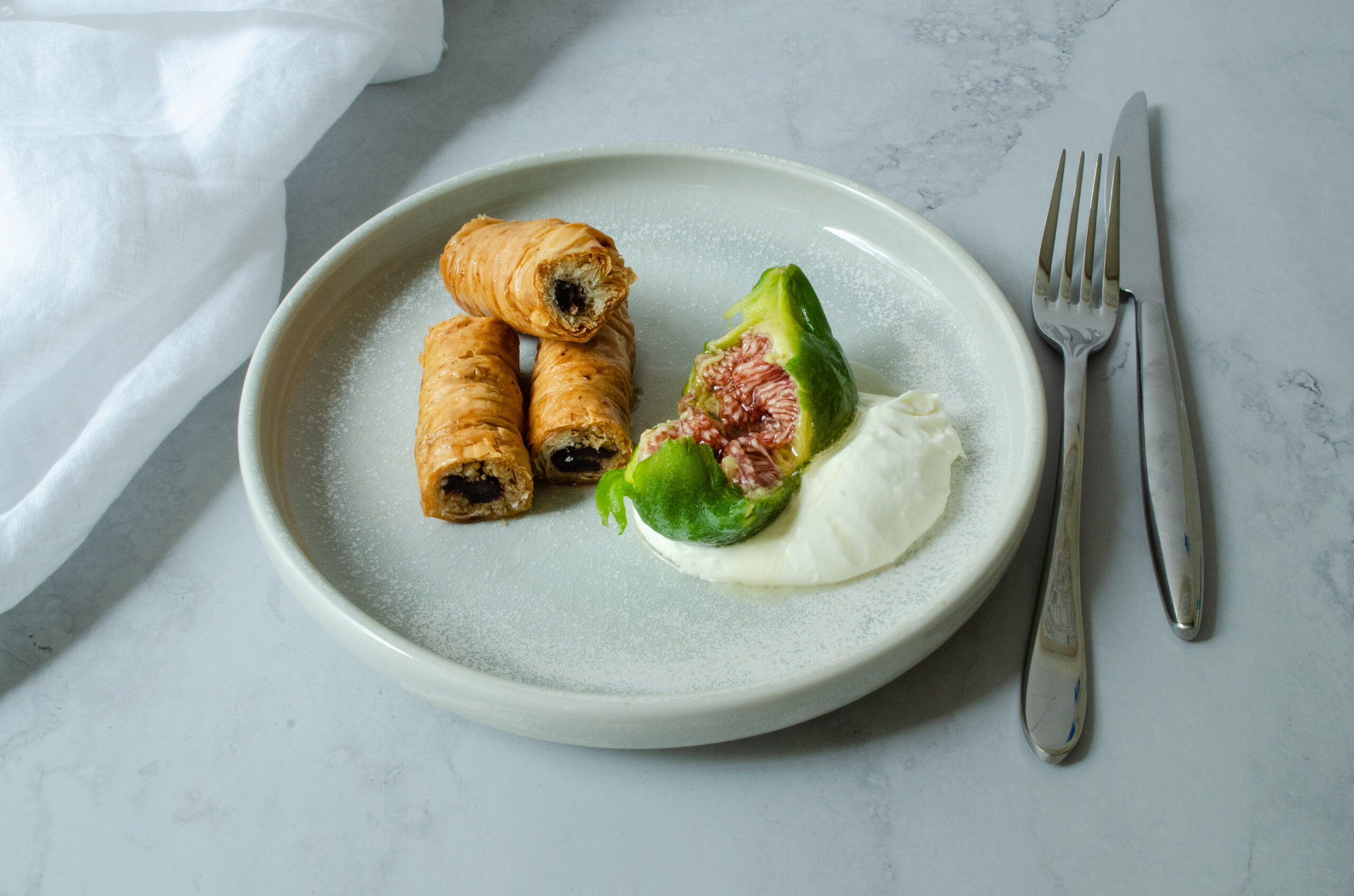
In addition to that eye-opening trip to Iran, the pillar of inspiration for Delara comes from the flavours and time-honoured techniques Ilbeiggi saw through a life of dinners cooked by his mom (who was in Delara’s kitchen tending to sauces when I was in) and meals shared at his aunt’s house. But he didn’t always view things this way.
When the chef started culinary school 12 years ago, he remembers correcting his mother’s cooking advice. “I’d have conversations with my mom about how to make something, and when she would explain it, I’d tell her, ‘It’s so much better if you do this.’ And she’d tell me, ‘Well, traditionally, it’s done this way.’” The tenderfoot cook would resist his mother’s knowledge, but after years of assembling other countries’ cuisines, today he relishes her advice.
Still, Ilbeiggi brings modern tools to those traditional lessons. “I have this combi-oven that you can steam and bake with at the same time. I have blenders that didn’t exist in ancient Iran. So those help us make the foods more flavourful.”
For Ilbeiggi, none of his pillars are contradictory. “I’m just a Persian guy cooking food. I try to keep the basis of the humble Iranian food. The rice, saffron, turmeric, dried lime, yogurt? Let’s incorporate those and see if anything fun comes out of it.”

At Delara, the food is fun—and it is bright. But what also feels illuminated is the service. I ask Ilbeiggi if he’s thought much about his early days in ruthless kitchens and whether he still clings to his early philosophy. His answer is a resounding yes.
“Anybody who comes in, whether that be my front-of-house people or back-of-house people, I always explain that kindness is the core of our philosophy. That’s the first thing I say; I don’t say anything about the pay, the skills, or the food. Kindness first.” The second thing the chef hopes for is a willingness to learn. “Those are, for me, the magic ingredients. If I have someone who wants to learn and is kind, I want them at Delara.”
Photography by Eva McMillan and Jacqueline Johns.

